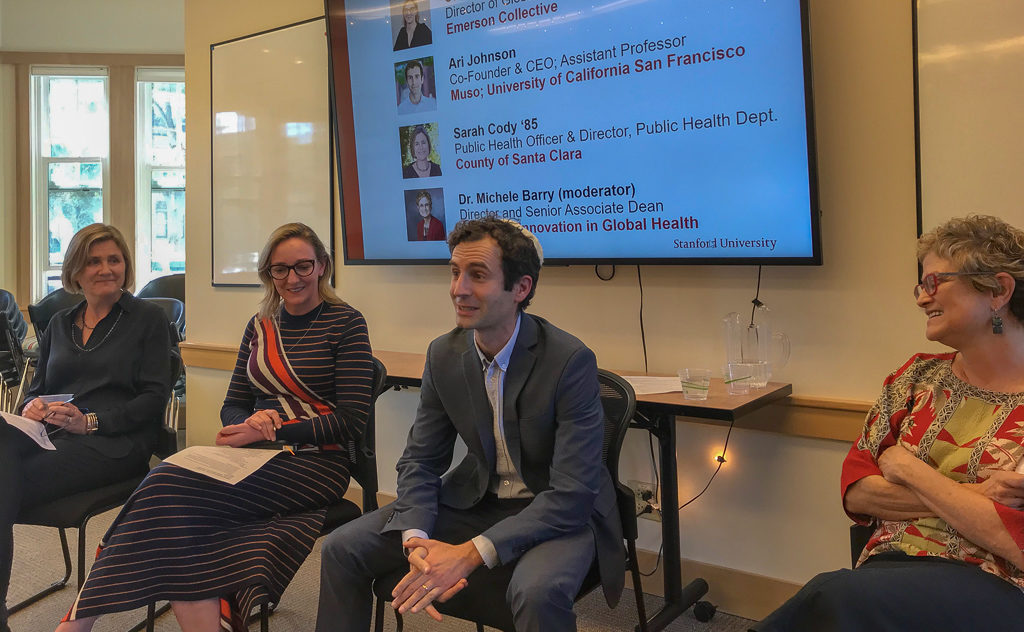Published: 05/01/2019
By Ashley Jowell, Stanford Global Health Program Associate and Jody Berger, Stanford Global Health Communications Manager
Building a successful career in global health could require expertise in infectious diseases, dermatology or oncology. But biostatistics and anthropology could also be the key, Dr. Sarah Cody told the audience of undergraduates, graduates, medical students, and residents at the Pathways to Global Health Careers event.
“Find the alignment between what you’re naturally good at doing and global health—this kind of work requires every skill set imaginable,” said Dr. Cody, who is the Santa Clara County Health Officer. Dr. Cody was a human biology major at Stanford, and she completed medical school at Yale University and worked for the Centers for Disease Control before joining the county health department.
Dr. Michele Barry, Senior Associate Dean in Global Health and the Director of CIGH, moderated this panel event which featured Cassia van der Hoof Holstein, Director of Global Health Equity at Emerson Collective; Dr. Ari Johnson, Co-Founder and CEO of Muso as well as Assistant Professor at University of California San Francisco; and Dr. Cody. This event was created in collaboration with the Haas Center for Public Service as part of their “Cardinal Careers” Series.
Throughout this intimate conversation, panelists described their diverse pathways to entering the global health space.
Cassia van der Hoof Holstein, the Director of Global Health Equity at Emerson Collective and the former Chief of Staff for Partners in Health, brought a non-clinical perspective to the conversation.
Dr. Ari Johnson, who is the Co-Founder and CEO of Muso and an assistant professor at University of California San Francisco, brought his perspective of many years of experience at an NGO that prioritizes measurable health outcomes.
And Dr. Cody emphasized how local health is global health – and how health disparities across the world also exist within our own local community in the County of Santa Clara. The most important thing I have done is to listen, align myself, sit, and live with those who knew better than me.”
Panelists emphasized the importance of sustained, community partnerships when engaging in the global health field. Dr. Johnson, who has decades of experience in global health, explained it this way: “The most important thing I have done is to listen, align myself, sit, and live with those who knew better than me.”
The panelists share a belief that all people worldwide deserve access to healthcare and the opportunity to increase their well-being. For students pursuing a career in global health, van der Hoof Holstein highlighted that it’s always important to think about “the equity lens in whatever I [or you] want to do.”
Dr. Barry closed the panel by reminding the audience that, “Each and every one of your voices matters,” and encouraged the crowd to pursue pathways dedicated towards improved health equity. Following the event, students networked with the panelists and had the opportunity to ask more questions.
